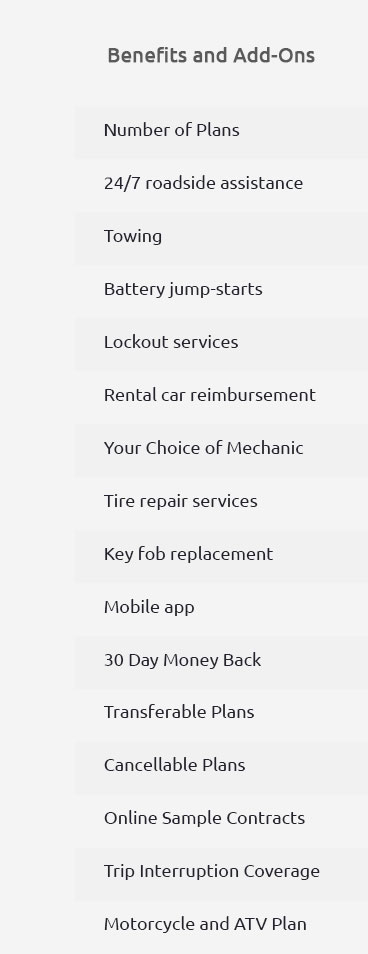 |
 |
 |
Select your vehicle to see available coverage options:
 |
 |
|||
 |
|||
 |
 |
 |
|
 |
|||
 |
|
 |
|
 |
|
 |
|
 |
|
 |
|
 |
|
 |
|

Comprehensive Auto Coverage: A Complete Guide for U.S. ConsumersUnderstanding comprehensive auto coverage is crucial for car owners in the U.S. It provides peace of mind, covers unexpected repair costs, and can include extended auto warranties. This guide will help you explore vehicle protection options and make informed decisions. What is Comprehensive Auto Coverage?Comprehensive auto coverage protects your vehicle from non-collision related damages. It's an essential part of a robust auto insurance policy.
Key Benefits of Comprehensive CoverageProtection from Natural DisastersNatural disasters like hurricanes and tornadoes can cause significant damage to vehicles, especially in states like Florida and Texas. Theft and Vandalism CoverageYour car is protected if it's stolen or vandalized, providing financial relief and security. Repair Cost CoverageComprehensive coverage takes care of repairs that can be costly, such as broken windows or hail damage. Considering an extended warranty? Check out volkswagen extended warranty prices for more details. What Does Comprehensive Coverage Not Include?While comprehensive coverage is extensive, it doesn't cover everything.
Extended Auto WarrantiesFor those seeking additional protection, extended auto warranties are an option. They cover repairs after the manufacturer's warranty expires. Interested in specific pricing? Look into audi extended warranty prices to see how much you can save. FAQs about Comprehensive Auto CoverageWhat is included in comprehensive auto coverage?Comprehensive coverage includes protection against theft, vandalism, natural disasters, and non-collision-related damages. How does comprehensive coverage differ from collision coverage?Comprehensive coverage deals with non-collision incidents, while collision coverage pertains to accidents where your vehicle collides with another object. Do I need comprehensive coverage if my car is older?It depends on the car's value and your personal comfort with risk. If the repair costs might exceed the car's value, it may not be worth it. Understanding comprehensive auto coverage helps you make better financial decisions and ensures you're adequately protected against unforeseen events. Whether you're in California or New York, investing in the right coverage offers peace of mind and potential savings. https://tgsinsurance.com/texas-auto-insurance/comprehensive-coverge/
Comprehensive coverage differs from collision coverage because it offers financial protection for damage to your vehicle that occurred by something other than a ... https://www.allstate.com/resources/car-insurance/what-is-comprehensive-auto-insurance
Comprehensive car insurance is a coverage that helps pay to replace or repair your vehicle if it's stolen or damaged in an incident that's not a collision. https://www.progressive.com/answers/comprehensive-insurance/
Comprehensive insurance coverage is defined as an optional coverage that protects against damage to your vehicle caused by non-collision events that are ...
|